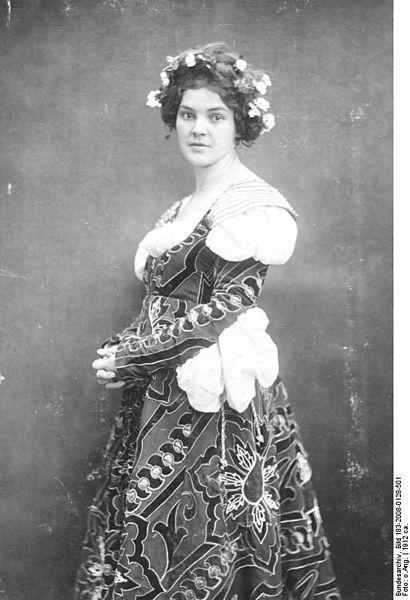Gentle Readers, I suggest that we banish the phrase "hidden masterpiece." Agreed? Good. Leaving that meaningless cliché aside, I can go on to happily discuss why Sibelius' 1916 music for Hofmannsthal's
Jedermann (1911) is really worth a listen. Atmospheric and harmonically rich, it's a treat in its own right, doing interesting things with musical form. Rarely performed or recorded, it has a
new and engaging recording from the Finnish forces of the Turku Philharmonic under Leif Segerstram, and the Cathedralis Aboensis Choir. Sibelius composed the work to adhere exactly to stage directions, a prescription that the CD leaflet speculatively blames for its rare performance. I can't hear that, myself. The piece is not symmetrically composed, but it's richly allusive, lively and meditative by turns. Sibelius may have been annoyed that the devil never came in on cue, but there's plenty to enjoy in the piece without its accompanying morality play. The work is rounded out, on the disc, by thematically similar works of the composer from around the same period.

From a 1912 performance of Jedermann
I did not know that
Jedermann is an institution of the Salzburg Festival; as a medievalist and opera-lover, I am heartily ashamed of myself. (
Here is an excerpt from Frank Martin's music for it, as sung by Fischer-Dieskau.) I'm also miffed that no one has thought to perform its incidental music in a metropolis near me. (Hello,
White Light Festival? I have a suggestion.) I know I am
perhaps unusually likely to enjoy early twentieth-century music designed for a pseudo-medieval morality play, but I found it delightful and absorbing. There are bells to herald a divine proclamation. There are choruses to celebrate Worldly Pleasures, in which motifs are skillfully intertwined. The Turku Cathedral Choir was particularly well-suited to these, I thought. A madrigal becomes a canon, blending secular and sacred without erasing tensions between them. Mysterious, muted strings accompany personal reflections on mortality. The organ, to me, seemed to strike an inappropriately churchy and post-medieval note, but that's my pedantry showing.
While I was most engaged by the morality play, I also relished discovering the other performances on the disc. The Two Serious Melodies (opus 77) were not wallowed in, or treated with sentimentality. I found the rendition of
Laetare anima mea to be very poignant, taken with nice phrasing, tempi that never dragged, and no schmaltz (not a given in recordings of the work, in my experience.)
Ab imo pectore was given with an aptly deep sense of yearning. ("Devotion?" English translators, you have much to answer for.)
In memoriam was similarly performed without any lugubriousness; the piece's solemnity felt meditative, rather than heavy-handed. And that, in a piece so iconic, is no small gift.


